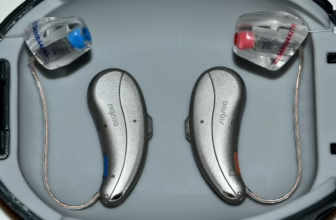Cerebral Palsy (CP) is the name given to a group of disorders that affect a person’s balance, mobility, and posture and is caused by a brain injury that happens early on in life – either before, during, or after birth. CP affects each person differently and can range from mild to severe symptoms, however, there are several ways that you can help your child to do their best.
Types of Cerebral Palsy
There are four main types of CP which include hemiplegic (affects one side of the body), diplegic (affects 2 limbs), monoplegic (affects 1 limb), and quadriplegic (affects all 4 limbs and usually the whole body).
- Spastic – stiff and tight muscles which can make it difficult to move and reduces the range of movement possible.
- Dyskinetic – muscles switch between stiffness and flopping which can cause random, uncontrolled movements and spasms.
- Ataxic – balance and coordination problems that result in clumsy, shaky movements and sometimes tremors.
- Mixed – symptoms of more than one type of cerebral palsy
Consider Compensation
Due to CP being caused so close to birth, in some cases, it may be due to poor medical care during or after birth. If this has happened to you and your child then a cerebral palsy medical negligence claim could be an option that could leave you will an adequate amount of money that can be put towards getting your child the preferred care and treatment. If your child was recently diagnosed and you suspect malpractice, get copies of your medical records and consult an attorney. Compensation can be really helpful for parents who may have to leave work or reduce their hours to care for their child where the disability may be more severe and they are required to be a full-time carer.
Focus on Diet
The number of calories your child needs will depend on their muscle tone and activity levels as a child with high muscle tone and activity level will need to eat more than one with low muscle tone and activity level.
Children with CP can have issues with movement, muscle tone, and motor skills which can make it difficult to eat and swallow easily. Many may also have digestive problems which can make eating uncomfortable and these issues can make it hard for your child to get all the nutrients that they need to thrive. Low bone density is a side effect of not getting enough of the right nutrients and this can make your child’s bones more likely to break or fracture. As such, to keep bones strong you should ensure that your child has enough calcium, vitamin D, and phosphorus as well as others. If you are concerned about your child’s diet then get in touch with your doctor or dietitian and they may be able to recommend supplements such as tablets, boosters, or meal replacements.
Meet Others
While you may find yourself bumping into other families in the doctor’s surgery or physical therapist’s office, there are also plenty of online support groups for parents of children with cerebral palsy. This can be a great way to meet other people but also to remind yourself that you are not alone on days when you may be struggling. Having a group of friends that can share experiences, coping strategies, and parenting tips, while also letting your children socialize, is a great way to build their communication skills – so it’s a win-win!
Image via Deposit Photos
Follow me down the rabbit hole!
I'm Alice and I live with a dizzying assortment of invisible disabilities, including ADHD and fibromyalgia. I write to raise awareness and end the stigma surrounding mental and chronic illnesses of all kinds.








